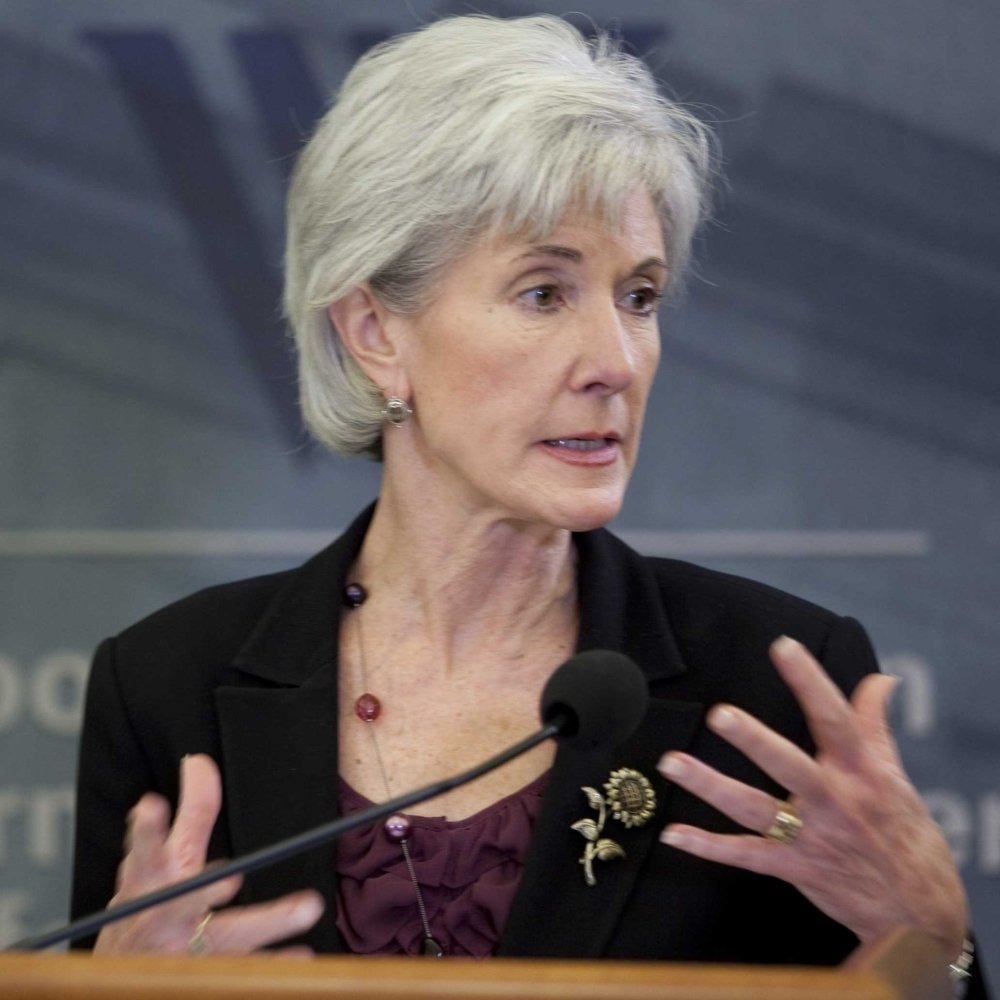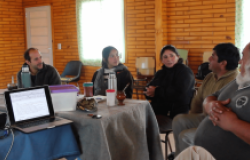Sebelius Outlines Domestic, Global Health Challenges at Board Dinner
Health and Human Services Secretary Kathleen Sebelius discusses the historic U.S. health reform effort, saying "The costs of doing nothing are extraordinary." She also discussed global health challenges at the first Board of Trustees dinner of 2010.

Secretary of the U.S. Department of Health and Human Services (HHS) Kathleen Sebelius delivered the keynote speech at the Wilson Center Board, Council, and Alliance dinner on February 1. Sebelius, also a member of the Wilson Center's Board of Trustees, discussed domestic health reform as well as global health challenges and efforts.
Sebelius underscored the need for comprehensive U.S. health reform and applauded the historic effort underway in the Obama administration. Despite the present impasse, she is encouraged by the two comprehensive reform bills that passed the House and Senate, which she said included some similar components, including lowering the cost of premiums; modifying Medicare; and offering affordable coverage options for the uninsured and underinsured.
"The costs of doing nothing are extraordinary," she said. "Millions of Americans will lose coverage; small business owners can't keep their employees; premiums will rise. Americans spend almost double what other countries spend. We are on an unsustainable trajectory…Health reform is an integral part of getting our economy back on track."
Sebelius also discussed global challenges. When she was sworn in to this post in April 2009, Sebelius said, "I had a pandemic in my welcome wagon," referring to the H1N1 virus. "Disease is international. It has no borders."
Building on the previous administration's PEPFAR [President's Emergency Plan for AIDS Relief], President Obama's $63 billion commitment to a global health initiative over the next six years, she said, will help government agencies address global health challenges from HIV/AIDS to maternal and child health.
Another global challenge she cited is food safety. Sebelius said half of the fruit and three-fourths of the seafood consumed in the United States come from outside U.S. borders, which points to the need for improved safety regulations. She said the government must cooperate on this issue with the private sector, which has the most to lose from product problems and recalls.
After the recent Haiti earthquake, the U.S. government launched a large-scale relief effort, deploying doctors, medical supplies, food and water. HHS is also working with the State Department to facilitate the adoption process for Haitian orphans. Sebelius emphasized the importance of working with international partners to cooperate on this and a range of global health issues "to make a difference in the health and lives of our world neighbors."
Notable attendees at this dinner included Health and Human Services Deputy Secretary Bill Corr and Rep. John Dingell (D-MI), who having served for 55 years and counting, is the longest serving member of the House. Several ambassadors also attended including Ichiro Fujisaki of Japan; Pekka Lintu of Finland; Arturo Sarukhan of Mexico; and Mauro Vieira of Brazil.
The Board of Trustees meets three times a year to review the operations, budget, and governance of the Wilson Center. They ensure the Center's mandate is followed: bridging the worlds of scholarship and policy; fostering pertinent research and collaboration; and facilitating dialogue that yields better understanding and enlightened policymaking in national and world affairs. The Wilson Council and WilsonAlliances are individual and corporate supporters, respectively, whose annual contributions help the Center fulfill its mission of advancing knowledge in the public service.
About the Author


Environmental Change and Security Program
The Environmental Change and Security Program (ECSP) explores the connections between environmental change, health, and population dynamics and their links to conflict, human insecurity, and foreign policy. Read more

Maternal Health Initiative
Life and health are the most basic human rights, yet disparities between and within countries continue to grow. No single solution or institution can address the variety of health concerns the world faces. By leveraging, building on, and coordinating the Wilson Center’s strong regional and cross-cutting programming, the Maternal Health Initiative (MHI) promotes dialogue and understanding among practitioners, scholars, community leaders, and policymakers. Read more










